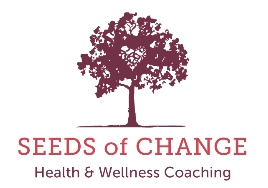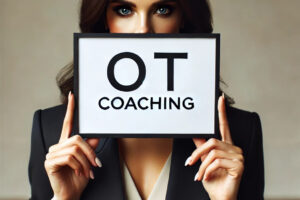When I speak in front of live audiences, I often pose the challenge, “Raise your hand if you have ever made a New Year’s resolution.” Almost everyone’s hand goes up. Then, I say, “Keep your hand up if you have ever had that same resolution for more than 3 years in a row.” The room usually reacts with laughter as most of the hands still stay up.
Bridging the gap between “knowing” and “doing” is the foundational essence of life coaching.
Consider the goals you set for yourself back in January. It is now December… one year later. How are you doing? Be honest. No judgement—How did it go? Did you give up before you started? Did you talk yourself out of it? Did you have starts & stops? Did you procrastinate or avoid the goal altogether? Did you get overwhelmed or not have the support you needed to reach your goal?
First—forgive yourself for not being further down the line on that goal. Whatever the goal was—know that inaction or inconsistent action are a wealth of information into the inner workings of your brain! Something is just getting in your way and there’s an opportunity to do an excavation to release it. Also, keep in mind—when a goal is set too big and there are no smaller, more manageable, less frightening goals in between, or there is an emotional/mindset block–the result is zero.
For any smart, successful person that knows intellectually what they need to do, but somehow, cannot gain traction to reach that goal, it is wise to consider hiring a personal coach. Getting people unstuck is the sweet spot that a well-trained coach does their best work.
Change can be difficult. Understanding the process and where you are on the continuum can help. James Prochaska and Carlo DiClemente developed the “Stages of Change” model back in the 1970’s. They discovered that there was a pattern with those who were able to make a sustainable change. The original research was with addiction, but this model applies to all types of changes, and life goals, from behavioral habits to business ventures.
As you read, consider the goal you set for yourself back in January and see if you can pin-point where you are right now in the process.
The stages of change are as follows:
Precontemplation: [Not Ready] At this point, you are not even thinking about the goal. The goal is not a part of your consciousness or awareness—it is a blind spot. OR—you may be aware of the goal (because other people may have brought it to your attention as a problem, like a complaint— or as a possibility in the form of a compliment—others may see potential in you that you can’t see yet for yourself). You may have a sense of resignation, fear, or resistance that anything can ever change.
Contemplation: [Getting Ready] You are fully aware that the goal is a possibility. You are thinking about it, weighing pros and cons, you are ambivalent; not fully committed, not in action, just giving thought to all possible scenarios; you are thinking about taking action, but not acting yet. You may spend a lot of time in your head, talking yourself into it or out of it; you may even be talking about it, but not acting yet.
Preparation: [Almost Ready]. In this stage you have decided that you want to go after the goal, and you are open to all options that will get you to the goal. In this stage, you are gathering information, researching, evaluating options, and taking small steps toward the goal.
Action: [Ready & in Action] At this point, you are ready to make the leap. The pain of staying the same now is worse than the pain involved in changing. Action takes many forms; from committing to a program; working with a coach, mentor or trainer; to actively starting positive behaviors or stopping negative behaviors. In order to reach the goal, action needs to happen and you are in action. It might not be perfect yet or consistent, but you are genuinely making an an honest effort to make a change.
Maintenance: [Consistently in Action] In this stage, the action is consistent, confidence grows, and the goal has been achieved. Challenges still remain, however, as setbacks can happen; temptations to return to the old ways are still present. Support is often still needed at this stage to maintain consistency & build strength with the new behaviors that allowed the goal to be achieved.
Mastery: [Action is natural & second nature]. In this stage, the goal has been fully achieved and integrated. The new behaviors are so solid that you feel like a different person—you have a new identity; the person you were in the beginning of this journey is not who you are right now. A transformation has occurred. You may even be inspired to teach others how to achieve their goal as you have now gained mastery in this area.
If you did not leap right into action toward your goals last January or stopped short of reaching your goal early in the year, don’t be too hard on yourself. Understand that change is a process. Not reaching your goal does not mean you aren’t motivated, or you don’t have enough willpower, or grit—it means you are fully human. It means you have a subconscious mind that is working hard against any change because change can be threatening. Working with a personal coach is a great investment in yourself that can get you unstuck and into action to achieve all your life goals.



